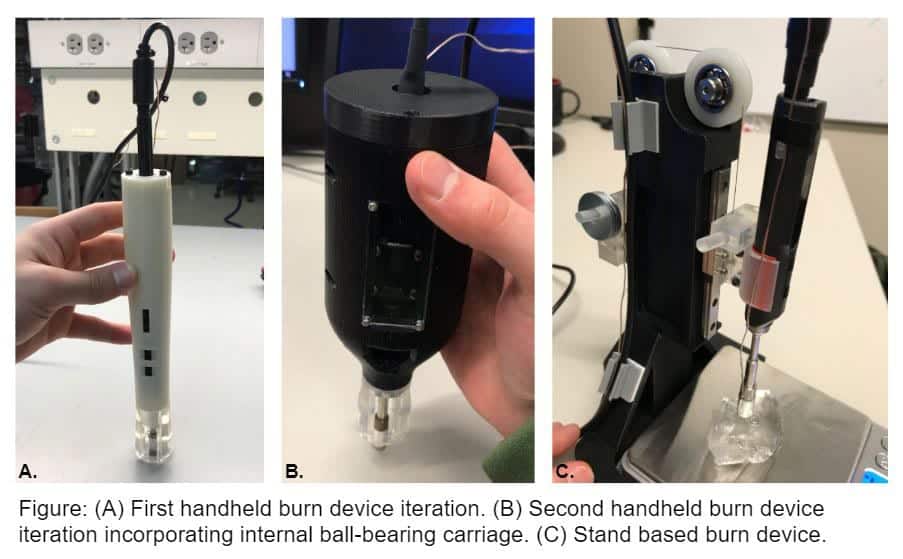A common problem when studying burn injury progression and healing is the lack of a method to reproducibly create consistent burn wounds. Without a consistent model, it is difficult to validate any potential treatments. The burn devices presented here can be used on ex vivo human skin models, as well as in vivo animal models, to create a broad range of burn wounds that are clinically relevant for research and investigation of burn injury pathology, novel burn therapies, and burn wound diagnostics.
The device consists of a cylindrical stainless steel heating element press-fit onto a soldering iron tip (TS100 Digital OLED Programmable Interface Mini Soldering Iron, GetFPV, FL), which moves on a ball-bearing carriage and guide-rail. The cylindrical tip is heated internally by the soldering iron to a desired user-preset temperature and smoothly delivered by connection to the ball-bearing carriage for creation of a uniform circular burn wound on a skin sample. The burn tip surface temperature can be monitored in real-time throughout burn delivery with attachment of an optional thermocouple and digital multimeter.
Several different versions were developed, each incorporating modifications to improve reproducibility by controlling orientation upon skin contact and consistency of pressure applied to the skin. The first version was a handheld device, which was then improved in a second iteration. The third and final version (see Figure) is a stand based device that includes the ability to calibrate the burn-tip contact for varying desired levels of pressure through the use of a miniature pulley system and small washers as counterweights. Additionally, a scale can be included below the burn tip to monitor the pressure in real time.
Included in the download link are the CAD files for each version and any supporting files needed to recreate and iterate upon the device. A guide document is provided in each folder that includes more information about the provided files and assemblies.
Collaborators
Josiah Wolf, Ben Cox, Aos Karim, Aiping Liu, Angela Gibson, Kevin Eliceiri
